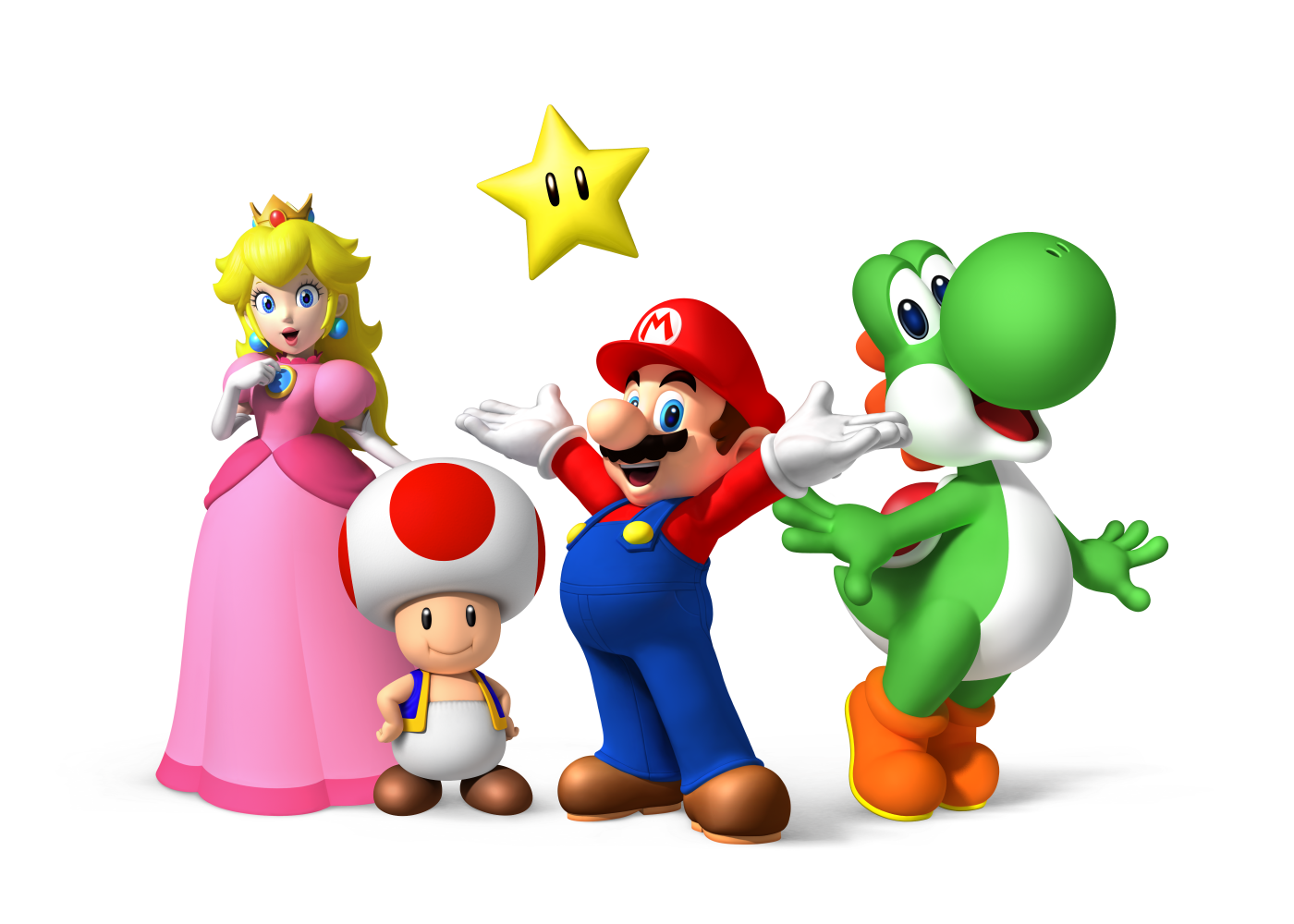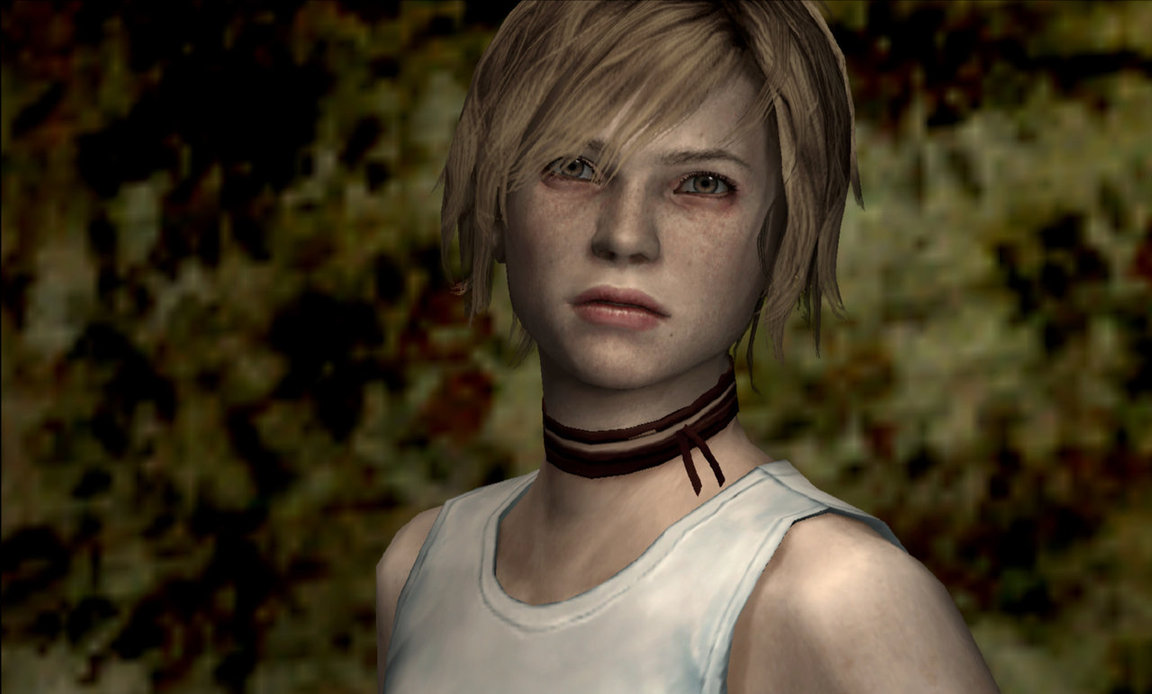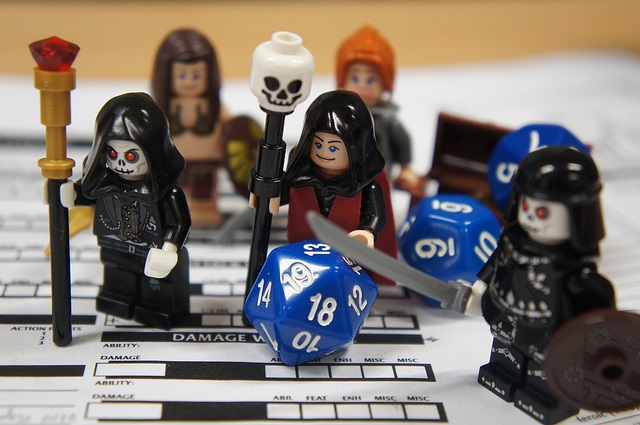American McGee has added another game to his portfolio of delightfully twisted fairy tales in Grimm, an episodic series recently debuted on Steam. The game is split into twenty-three individual parts. Each edition follows a traditional story from Grimm’s Fairy Tales, the first of which is currently available for free download. Much like his interpretation of Lewis Carroll’s Alice novels, Grimm’s chosen tales have undergone a grotesque transformation. But rather than beginning that way, the player instead assumes the task of transforming the stories into something decidedly more wicked. The more horrific the scene, the better you score.
In the game you control Grimm, a mischievous and rather fiendish dwarf who is disgusted with the cheer radiating from the various tales. Believing the stories have gotten too sweet and dull, he decides it is his duty to transform them to a darker form. Everything Grimm comes in contact with mutates – a dog becomes a hellhound spitting fire, the chains of a swing set become nooses, people turn into zombies – thus the more surface you cover the darker the scene becomes. As the player, your job is to not only transform each level, but to do so as quickly and thoroughly as possible.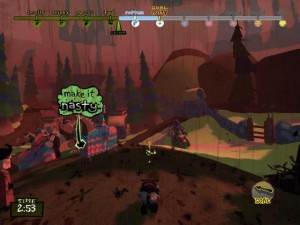
Controls in the game are fairly simple but there’s a sort of primal delight to find in this simplicity, especially as I found myself interested in studying the change of scenery as I progressed. The extent of Grimm’s capabilities are running in all directions, jumping, and “butt stomping,” a move often used to progress to the next level that sends a blast of dark distortion around Grimm. The citizens of the idyllic world aren’t all ready to give up their paradise, however, and will literally try to sweep away your progress. The more you change, the more you fill Grimm’s Dark-o-Meter, a toolbar that details the extent of Grimm’s powers. The higher the bar, which progresses from levels like “Smelly” to “Vile,” the stronger your transformation powers and radius. Certain objects, like the aforementioned “sweepers,” can only be corrupted after achieving a certain point on the meter. While players can challenge themselves by racing their previous records and while different chapters offer their own twists and turns, I could see the formula ultimately becoming repetitive over time.
It is perhaps the design of each level that is one of the most attractive aspects of the game. Everything, even in its dark form, feels childish and like it has jumped right out of a pop-up book. The characters look and move like puppets. Bright and cheery surroundings morph into pointed, fire-breathing, bloody ones. The more you go along, the less child-friendly things become.
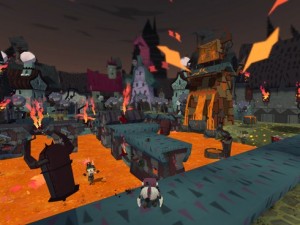 Despite the game’s inspiration, Grimm is not really about the story. In the first chapter entitled “A Boy Learns What Fear Is,” based off of the similarly named Brothers Grimm fable, Grimm the dwarf sees the young boy as “ignorant” of what fear truly is. Determining that the hero’s currently muddled-down journey does not appropriately project the slightly gruesome original tale, Grimm goes about setting it straight. However, the moral of the story missing from the “happy” versions Grimm hates is still not found in the transformed one as Grimm’s delight in making the story terrifying overwhelms everything else. But, in a sense, that’s the point, and a twisted humor and joy can be received by tainting the cheery little worlds.
Despite the game’s inspiration, Grimm is not really about the story. In the first chapter entitled “A Boy Learns What Fear Is,” based off of the similarly named Brothers Grimm fable, Grimm the dwarf sees the young boy as “ignorant” of what fear truly is. Determining that the hero’s currently muddled-down journey does not appropriately project the slightly gruesome original tale, Grimm goes about setting it straight. However, the moral of the story missing from the “happy” versions Grimm hates is still not found in the transformed one as Grimm’s delight in making the story terrifying overwhelms everything else. But, in a sense, that’s the point, and a twisted humor and joy can be received by tainting the cheery little worlds.
While I would still argue that the Brothers Grimm editions of the tales are still much more terrifying than Grimm’s transformed ones, especially because the psychological and ethical elements of those original tales fuel the grim (you knew that pun was coming) moral lessons, American McGee’s Grimm is still an enjoyable experience given its free-to-little cost and design.

